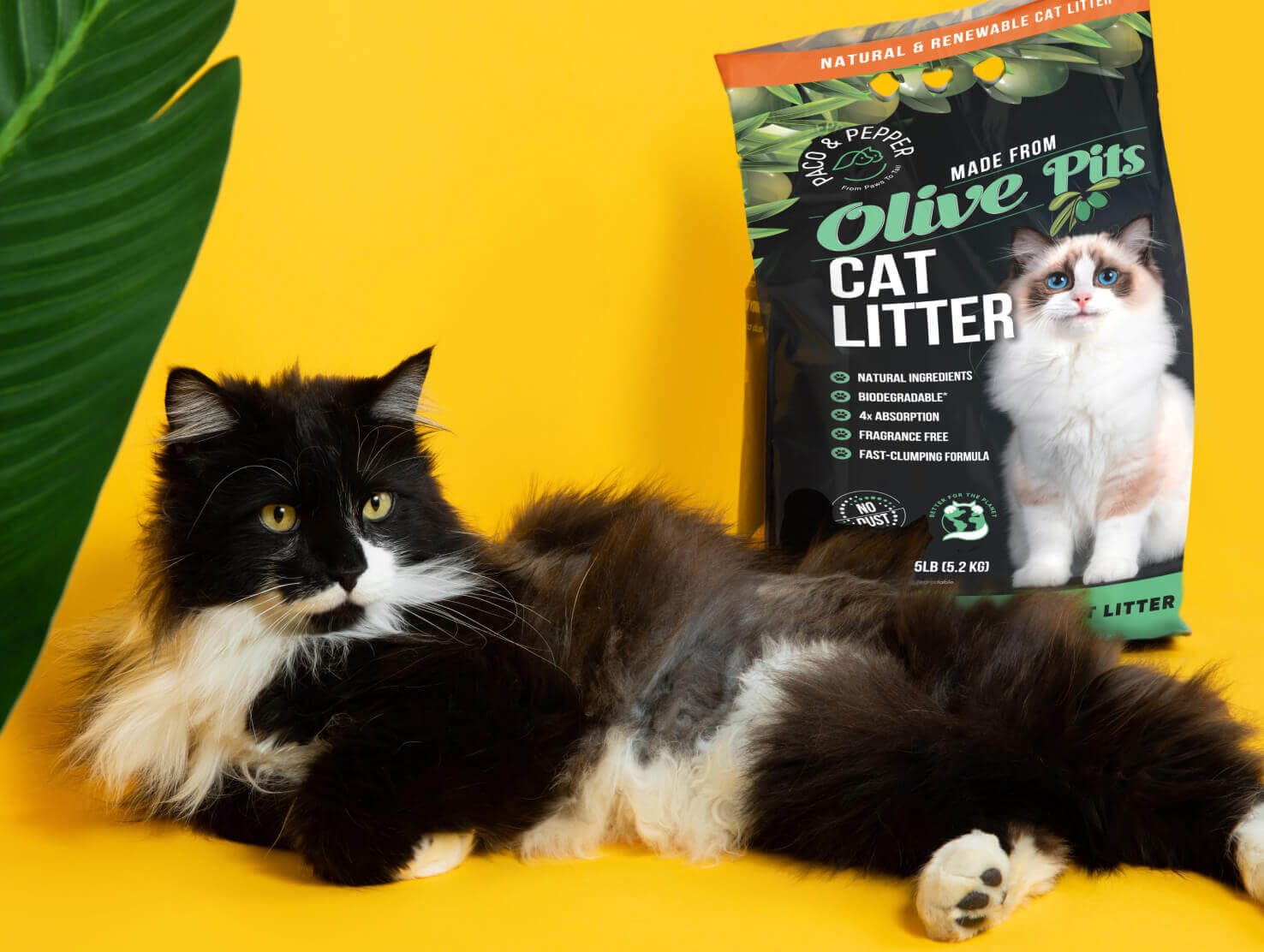Can Cat Litter Make You Sick?

Caring for your feline friend involves more than just providing food and water; it also means maintaining a clean and safe environment, especially when it comes to the litter box. In this article, we'll look at the question: Can cat litter make you sick? We'll discuss the potential health risks associated with cat litter and how choosing the right litter can make a difference.
Can kitty litter make you sick?
Cat litter can indeed make both humans and cats sick if it is made from toxic or dusty materials, or if pet owners do not maintain the litter box properly. it is not handled properly. Let's look at some of the reasons why pets and their owners can develop diseases.
- Bacterial Contamination: Cat feces can contain harmful bacteria such as salmonella and Toxoplasma Gondi. If litter trays are not cleaned regularly, these bacteria can multiply and contaminate the surrounding area. If people come into contact with contaminated litter or inhale dust particles carrying these bacteria, they may develop gastrointestinal infections, diarrhea and vomiting. For example, Toxoplasmagondii, commonly found in cat feces, can cause toxoplasmosis, a parasitic infection that can be especially dangerous for pregnant women and people with weakened immune systems.
- Parasitic infections. Parasites such as roundworms, hookworms and giardia can also be present in cat feces. These parasites can infect humans through accidental ingestion or skin contact with contaminated debris. Once in the body, they can cause symptoms such as abdominal pain, nausea and diarrhea. Children, in particular, are at risk of contracting these infections due to their tendency to play in areas where cat litter may be present.
- Skin Infections: Contact with contaminated kitty litter can also lead to skin infections, especially if there are open sores or cuts on the skin. Bacteria and fungi present in the litter and tray can enter the body through these openings, leading to skin irritation, redness and even more serious infections if left untreated.
To reduce health risks, it is very important to practice good hygiene and regularly care for your pet's litter box. Regular cleaning and cleaning of the litter box, washing your hands thoroughly after handling cat litter or feces, and using appropriate personal protective equipment such as gloves and masks are all simple rules that can help prevent health problems for you and your cat. These rules are especially important to follow for people with weakened immune systems, owners of kittens and frequently ill cats, and also if you have a pregnant woman or cat in your family. You should remember that dirty cat litter makes you sick.
Can Inhaling Cat Litter Dust Make You Sick?
Inhaling cat litter dust is another common problem among cat owners, and for good reason. Dust particles released from cat litter can contain a variety of substances, including clay, silica and other toxic substances that can pose a respiratory health hazard.
- Clay Dust. Can cat litter dust make you sick? Many traditional cat litters are made from clay, which can generate significant amounts of dust. Inhaling this dust can irritate the respiratory system, leading to symptoms such as coughing, sneezing and shortness of breath. For people with asthma or allergies, exposure to clay dust can aggravate respiratory problems and worsen existing symptoms.
- Silica particles: Clay-based litters often contain silica gel, which is used to improve clumping and absorbency. Silica dust can be especially problematic when inhaled in large quantities over time. Long-term exposure to silica particles can cause lung damage and breathing problems, including silicosis, a serious lung disease caused by inhaling crystalline silica dust. Although the risk of developing silicosis from cat litter dust is relatively small, it is still important to minimize inhalation exposure, especially in households with multiple cats with separate litter boxes. Such kitty litters can easily make you sick so you have to be careful.
- Feces: Cat litter dust may also contain fecal particles, which may contain bacteria, parasites and other pathogens. Inhaling these particles may increase the risk of respiratory infections and gastrointestinal illnesses. Additionally, the smell of dirty litter boxes can be overwhelming and unpleasant, leading to headaches, nausea, and other symptoms.
To reduce the risk of inhaling cat litter and the associated health hazards, take the following precautions:
- Choose low-dust or dust-free cat litter, such as Paco & Pepper cat litter, which is made from natural ingredients and does not produce dust.
- Use a high-quality litter box with a closed design or built-in filtration system to trap dust and odors.
- Clean the litter box regularly to minimize dust accumulation and maintain a hygienic environment for your cat.
- If you use very dusty litter, use a mask and gloves when handling cat litter to protect yourself from exposure to dust, especially if you have sensitive airways or allergies.
- Keep the litter box well-ventilated to effectively disperse dust and odors.
By taking these precautions and choosing cat litter that prioritizes safety and cleanliness, you can protect both your respiratory health and the well-being of your feline companion because inhaling cat litter can easily make you sick if you don’t follow these simple rules. Choosing the right cat litter is also a very important part of maintaining a healthy and hygienic environment. for your pet and your family. By choosing Paco&Pepper cat litter, you can be sure that your cat's litter box will not only be clean and odorless, but also safe and non-toxic. Make the switch today and enjoy peace of mind knowing you are providing the best for your beloved pet.

